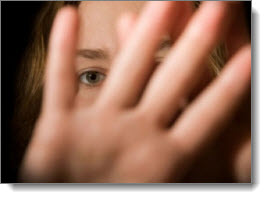Social phobia is an irrational fear of social or performance situations. Those with social phobia – also known as social anxiety disorder – suffer from an intense fear of doing or saying something that will embarrass them in social settings such as eating in public, attending parties, dating, taking exams, and public speaking. Fear of humiliation, rejection and separation may lead them to refrain from any of the situations just mentioned. Sufferers typically experience the triad of worry, avoidance and physical complaints.
 Few social anxiety sufferers will seek professional help; 70-80 percent of them meet criteria for another diagnosis – usually alcohol dependence, depression or another anxiety disorder. Social anxiety disorder occurs only slightly more frequently in women.
Few social anxiety sufferers will seek professional help; 70-80 percent of them meet criteria for another diagnosis – usually alcohol dependence, depression or another anxiety disorder. Social anxiety disorder occurs only slightly more frequently in women.
The primary treatment is some form of cognitive therapy. In order to change thought patterns though, individuals have to be willing to explore possible underlying causes driving their phobias. This can mean uneasiness; nevertheless these fears need to be addressed head-on. Other behavioral treatment alternatives are assertiveness training and social skills building.
Selective serotonin reuptake inhibitor antidepressants – the Prozac family – can also be helpful. The inhibitory effects of serotonin can have a calming influence and help build confidence to face social exposure.





Leave A Comment
You must be logged in to post a comment.